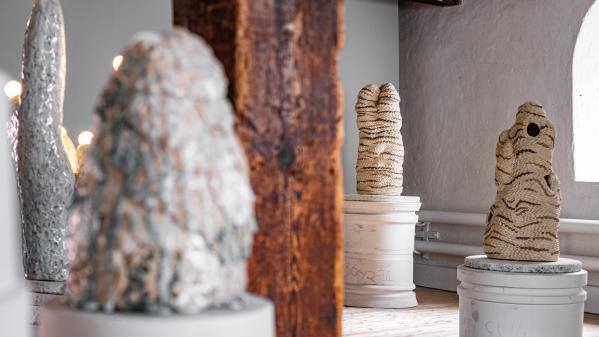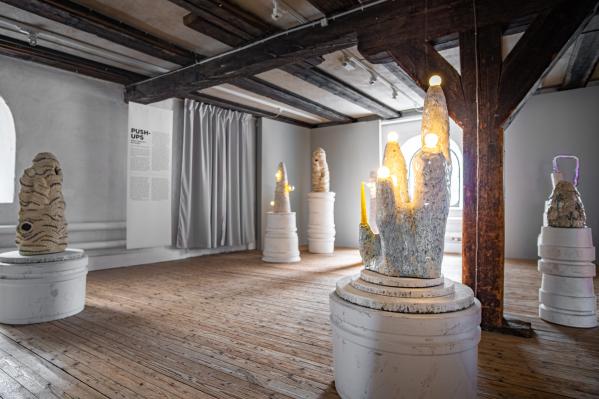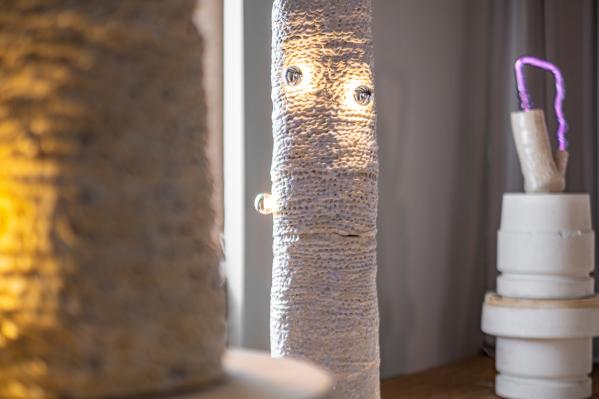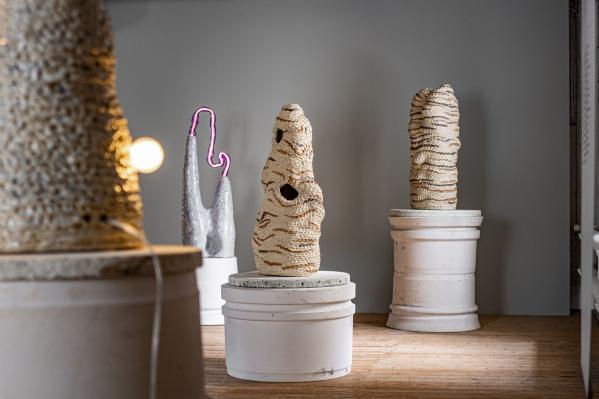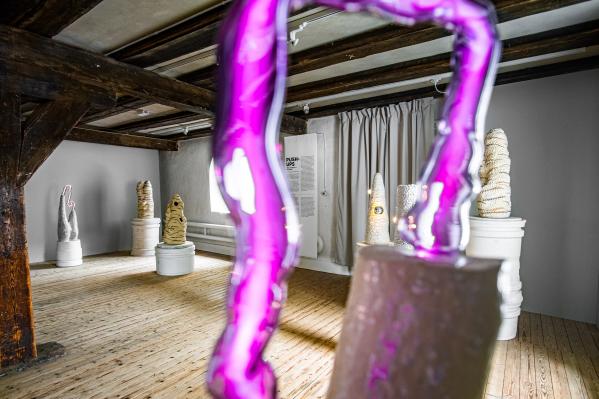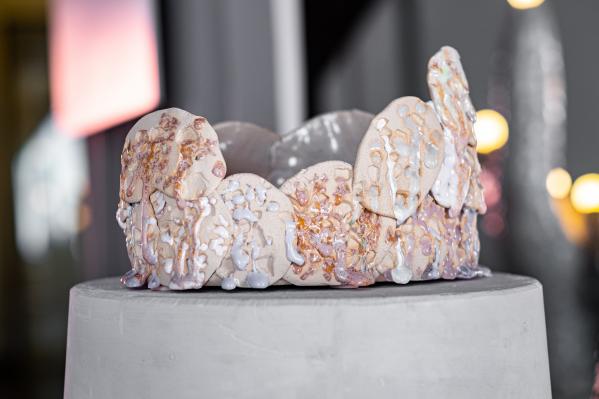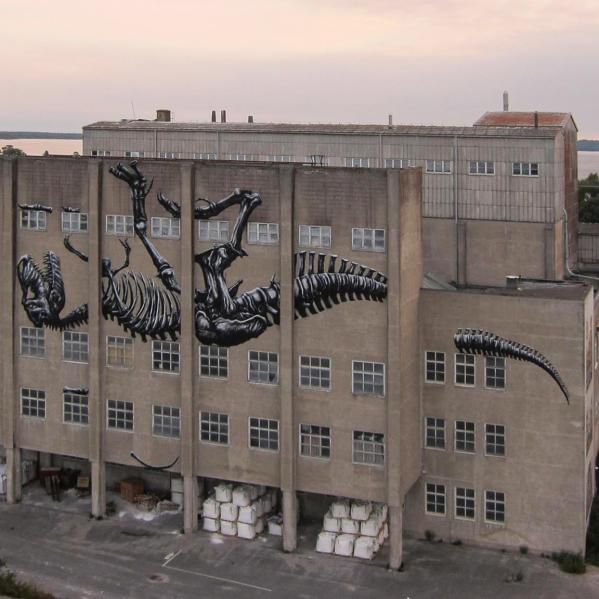Attua Aparicio’s four-month stay as an artist-in-residence at Ifö Center became a period of goal-oriented exercises, rather like an athlete does push-ups. She uses the word “push-ups” to describe her works literally, as the clay pushes its way upwards. Her desire is to challenge herself – to push both the materials and the technique up to a higher and more complex level than she has used before. The method enables her to create systematic patterns at the same time as she builds a ceramic work from the bottom up in a coiling motion.
Aparicio often gives her works tasks to do over and above their purely aesthetic function. They emit light, reflect or create space for (plant) life. Cavities and structured surfaces are filled with crushed coloured borosilicate glass that has been melted and fused to the ceramic material. Jochen Holz custom-makes neon glass for her in London. She often also integrates other light sources, ranging from lightbulbs to candles. The result is a unique combination of sculpture and functionality, in which the objects enlighten us, themselves and each other.
ATTUA APARICIO
Attua Aparicio grew up in Spain but is based in London. Her artistry emerges from a deep desire to experiment. She rebels against material conventions, tries out unusual combinations and searches failures for new possibilities. She received an MA in Design Products from the Royal College of Art in 2011. Even as a student she was very interested in sustainability and the environment. She first began working with ceramic art in order to discover a way to use borosilicate glass waste – a strange material that is not recycled. Her exploration of the material’s possibilities has taken her to a residency at European Ceramic Workcenter (EKWC) in the Netherlands, Jingdezhen in China, and now most recently to Ifö Center in Bromölla.
IFÖ CENTER
Ifö Center is an artist-run, multidisciplinary cultural center on the shores of Lake Ivö in the heart of Bromölla. It features an outdoor gallery with world-class street art, an art gallery, two different residency programmes, a professional artists’ collective, educational courses, studio places, accommodation and projects.
Ifö Center came into existence in 2011 as just an idea, when two artists wondered: “Can we create a cultural center in the heart of what is still an active factory?” The answer was yes. Ifö Center was established in the in-between spaces – the unused areas in the factory’s upper floors. Today, Ifö Center operates an extensive programme of activities, welcoming artists, creatives and visitors from around the world. Its operations are centered in and around the historic Ifö factory, which produced ceramic wares on an industrial scale ever since the end of the 19th century.
The insulator factory where Ifö Center is based ceased operations in 2018/2019. With the aid of a crowdfunding campaign, the building was purchased and the cultural project was saved. Today, Ifö Center has at its disposal 43,000 square metres of space distributed across several buildings. In terms of its floor area, it is one of Europe’s largest cultural centers but the project itself is still being developed. Ifö Center is run mainly on a volunteer basis but it also receives funding from Region Skåne, Bromölla Municipality, Ivetofta Sparbank and many others – ranging from companies that donate materials to private individuals who work as volunteers. Ifö Center is part of Trans Europe Halles, an international network of independent cultural centers based in former factories. The network’s fundamental values include solidarity and an environmental mindset.
